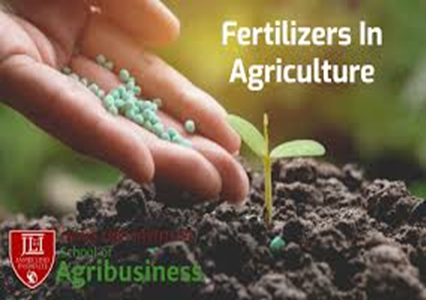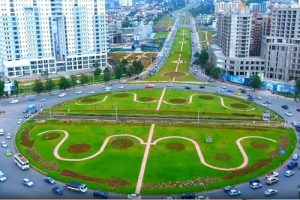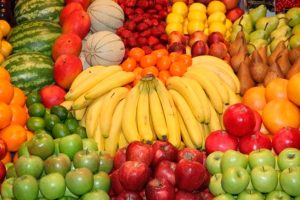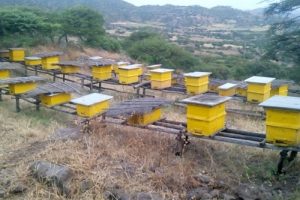
With the continuously growing human population, increasing crop production without experiencing a distraction impact on the environment is the main contest that agriculture is currently facing. Obviously, agriculture plays a significant role in beefing up economic growth. The rapid rise of the human population determines a growing demand for food and water, which results in higher energy usage and, therefore, the use of nonrenewable resources.
In Ethiopia, agriculture is the primary source of human welfare and economic growth and the main contributor to the economy. However, the production is categorized by low productivity, survival orientation, low level of technology, low level of inputs like fertilizer and pesticide, lack of road and market options, and extreme susceptibility to rain inconsistency.
Having this in mind, The Ethiopian Herald had a stay with Mohammed Jawar, an agro economist graduated from Addis Ababa University, to seek a piece of information about how can the agricultural productivity increase using fertilizers, swell soil fertility thereby coming up with remarkable economic progress and helping the farming community harvest the best yield using fertilizers.
He said, “The modern system of agriculture should be based on the reproduction of soil fertility, energy and resource conservation and environmental balance. This requires the skillful use of local resources and the development of methodical approaches and techniques to optimize destabilizing and stabilizing performance factors.”
As to him, food security has remained challenging for most developing countries like Ethiopia. For food self-sufficiency, crop productivity growth is vital in order to stimulate growth in other parts of the economy. Subsequently, agriculture is the key source of raw materials to food processing, beverage, and textile industries.
According to Mohammed, increasing area farming land is no longer a feasible strategy to feed the growing population. Hence, intensification strategies to increase crop productivity while protecting the environment have become essential to attaining agricultural growth, food needs, and nutrition security.
Furthermore, many constraints hamper agricultural productivity in Ethiopia. Of the key factors, soil fertility depletion is one. To increase crop production needs cumulative effort to use endorsed fertilizers, enhanced crop variety, and control of crop pest diseases. However, agriculture largely depends on the increasing use of chemical fertilizers.
He said, “Soil has been subjected to severe nutrient deficiency triggered by natural and man-made factors. Therefore, increasing agricultural productivity requires a range of measures, including appropriate use of fertilizer, crop protection innovations, and improved seeds. Largely cereal-based mixed crop-livestock systems dominate Ethiopian rain-fed agriculture.”
He further elucidated that soil fertility reduction is the main contest that causes serious food insecurity and poverty. Increasing crop productivity remains the most feasible pathway for achieving the great challenge of feeding too many people. Nowadays, effective soil fertility amendment strategies are among the most essential needs for increasing soil fertility because soil nutrient deficiency is one of the major limiting factors for cereal crop yield reduction. Soil infertility is evolving as a serious problem causing low crop yields and food insecurity in the country.
Mohammed added, “To increase soil fertility, fertilizers, be they are organic, inorganic, or their integration, are used as the source of plant nutrients. Increasing soil fertility through fertilizer application is the common way of modern agricultural practice. Fertilizers are substances applied to the soil to supply essential nutrients to the plant tissue to increase the growth and yield the plants.”
Many fertilizer producers provide plant macro nutrients individually or in mixtures with the soil, and the application of macro nutrient fertilizers commonly affects nutrient accessibility to plants. Nitrogen, phosphorus, potassium, calcium, magnesium, and sulfur are essential plant macro nutrients, he opined.
Farmers are particularly hard hit, facing higher input costs while simultaneously facing a price-sensitive consumer market for their produce. Ethiopians are frustrated by rising costs, and the use of chemical fertilizers to increase crop production now is steadily increasing.
Fertilizer usage is of paramount importance in boosting agricultural production and productivity, and the determinants of its consumption. Though the high price of fertilizer is the major constraint for farmers, the effect of fertilizer use on the value of agricultural production and yield is positive, indeed! Modern agricultural practices have to be emphasized the massive use of chemicals, and this strategy has improved grain yields in several nations within the last decades. However, continual and excessive use of chemical fertilizers additionally leads to a decline in crop yields and soil fertility, he added.
Therefore, the current agricultural experience concentrates on searching for changes to nonrenewable chemical fertilizers because of immense prices and environmental contamination. The discovery of an efficient method for the formulation of an eco-friendly, low price, and competent organic fertilizer is an essential task for the future agricultural development. Developing countries like Ethiopia should concentrate on sustainable sources and ways of soil fertility preservation and amendment in addition to chemical fertilizers. Sustainable soil fertility becomes the means to prove the increasing population’s food security and keeping the environment.
Of course, he said optimization of fertilizer use refers to maximizing farmer profit resulting from fertilizer use, while not greatly adding to farmer risk. Nutrient management is very critical to maximize crop yield and to sustain soil productivity. Poor farmers need to achieve high net returns on their investment with little risk while wealthier farmers may strive to maximize profit per hectare. Profit potential from fertilizer use varies greatly with crop-nutrient choices.
As learnt from Mohammed, fertilizers are essential inputs for modern agriculture, helping to provide the necessary nutrients that crops need to grow and produce high yields. However, overuse of fertilizers can lead to environmental problems, such as water pollution and greenhouse gas emissions, and can also be costly for farmers. Therefore, it is important for farmers to use fertilizers efficiently to minimize waste and reduce environmental impacts while still maintaining high crop yields.
Farmers have to be provided with some long-term strategies for reducing fertilizer dependency and conclude with a call to action for farmers to adopt more efficient fertilizer management practices.
Different crops have varying nutrient requirements and uptake rates at different growth stages, and farmers must apply fertilizer when crops need it the most to avoid nutrient loss and improve soil fertility, Mohammed added.
Environmental factors, such as temperature and rainfall, also affect nutrient availability and uptake by crops, and farmers must adjust fertilizer application to suit varying weather conditions. Besides, applying fertilizer at the right time and rate is crucial for maximizing soil fertility and boost its fruitfulness. Hence, farmers should consider the crop type, growth stage, and soil conditions when determining fertilizer timing and rate as applying fertilizer at the wrong time or rate can lead to nutrient loss and reduced fertility.
He said, “Therefore, maintaining healthy soil is crucial for optimizing productivity. Practices such as conservation tillage, cover cropping, and crop rotation can improve soil health and reduce the need for fertilizer. By improving soil health, farmers can reduce their reliance on synthetic fertilizers and promote long-term sustainability.”
As to Mohammed, farmers can integrate alternative fertilizers into their existing fertilizer management plans to improve soil fertility. Thus combining synthetic and organic fertilizers can provide a balanced approach to fertilizer use, reducing costs and environmental impacts while maintaining high crop yields.
He said fertilizers provide nutrients to plants and help increase or sustain optimal crop yield. They also improve fertilizer nutrient use efficiency and minimize environmental impacts, such as nitrate leaching, greenhouse gas emissions, soil pollution, and nutrient runoff. Organic fertilizers, which combine organic and mineral fertilizers, enhance crop development by providing necessary nutrients and improving soil properties. However, improper use of fertilizers and poor soil management can lead to declining soil capacity and productivity. Overall, fertilizers play a crucial role in enhancing agricultural productivity by providing essential nutrients, improving soil properties, and increasing crop yield.
The effectiveness of various types and norms of organic fertilizers in improving soil fertility, productivity and crop production quality, as well as crop rotation productivity in a comparative aspect with the estimated norms of mineral fertilizers for obtaining the planned yield. Green manure crops are of great importance in the reproduction of soil fertility and increasing crop yields.
In a nutshell, sustainable farming practice, such as integrated pest management and water conservation, can reduce the need for fertilizer and improve overall farm sustainability. By adopting a holistic approach to farming, farmers can reduce their reliance on synthetic fertilizers while maintaining high crop yields. For the effective use of various types of fertilizers, it is necessary to study their fertilizing properties, the effect on the agrochemical, agro physical parameters of the soil and the productivity of the arable land. In combination with manure and other organic fertilizers, as well as mineral fertilizers, green manure as one of the elements of the fertilizer system should become a very powerful means of raising crops and increasing soil fertility.
BY MENGESHA AMARE
THE ETHIOPIAN HERALD THURSDAY 29 FEBRUARY 2024





